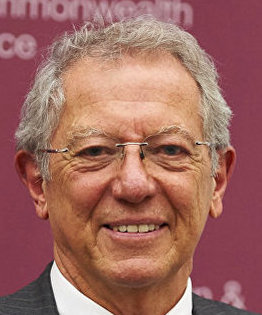Re-shaping Education for Sustainable Development
- 06-05-2025
- 3336

TITLE : Foresight in Policy Making :” Management of Risks and Opportunities for Rwanda and the World
SYNOPSIS :
’A form of Foresight in policy-making has been utilized in some developed countries since the 1950s. However, in 2001, from my position as UK Government Chief Scientific Adviser, I introduced a new in-depth Foresight analysis programme into Government which I will outline here. The objectives are to foresee and manage risks and opportunities to our countries over the coming 50+ years, bringing in appropriate experts from both national and international communities.
The process developed will be described with respect to two programmes in particular : the UK obesity epidemic, and the risks to the UK and to Rwanda from climate change.
In Rwanda my current work is focused around the challenges of meeting Vision 2050 with the anticipated doubling of the population, quadrupling of GDP, and growing impacts of climate change by 2050. I will focus on the harvesting and channeling of water to both meet increasing human demand and the avoidance of flood damage and loss of topsoil.’
Venue : UR KCEV Akagera Hall
Date : Thursday 21st March, 2019
Time : 4.00 p.m
ABOUT SIR DAVID KING
Professor Sir David King is a Partner of SYSTEMIQ and Senior Strategy Adviser to the President of Rwanda. He was the UK Government Chief Scientific Adviser, 2000-2007, the Foreign Secretary’s Special Representative on Climate Change, 2013-2017, working with 165 Climate Change Attaches in UK Embassies, and Chair of Future Cities Catapult, 2012-2016. He travelled widely to persuade all countries to take action on climate change. He initiated an in-depth risk analysis approach to climate change, working with the Governments of China and India in particular (Climate Change : a Risk Assessment), and initiated a collaborative programme, now known as Mission Innovation, to create a $25bn pa research and development international exercise, which involves 22 countries and the EC, to deliver all technologies needed to complete the transition into a fossil-fuel-free world economy.
He was born in Durban, educated at St John’s College Johannesburg and at Witwatersrand University, graduating with an Honours degree in Chemistry and a PhD. He has received 23 Honorary Degrees from universities around the world. He was Head, Department of Chemistry and Master of Downing College, University of Cambridge, and has published over 500 papers on surface science and catalysis and on science and policy. As Govt Chief Scientific Adviser he raised the need for governments to act on climate change and was instrumental in creating the British £1 billion Energy Technologies Institute. He created an in-depth Futures process which advised Government on a wide range of long term issues, from flooding to obesity.
He was Member, the President’s Advisory Council, Rwanda, and Science Advisor to UBS, 2008-12. He served as Founding Director of the Smith School of Enterprise and the Environment at Oxford University, 2008 – 2012.
Elected Fellow of the Royal Society in 1991 ; Foreign Fellow of the American Academy of Arts and Sciences in 2002 ; knighted in 2003 ; made “Officier dans l’ordre national de la Légion d’Honeur” by the President of France in 2009.